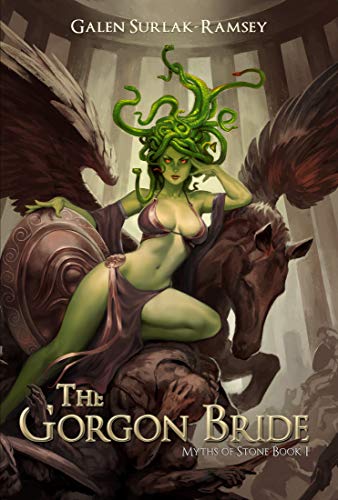Let's Get Weird
We’ve all said it. “She is so weird!” or “That was a weird dream.”
Do we even know what that words means? And more importantly, what it means in literature?
According to the Oxford Dictionary, weird has three definitions. Adjective seems to best describe the Old Weird literature, like H.P. Lovecraft’s work: “suggesting something supernatural; uncanny.”
But what about the New Weird? The Jeff’s Vandermeer’s hybrid horror and science fiction novel, Annihilation, kind of weird?
Annihilation is unique because it elaborates on Old Weird tradition while incorporating modern ideas. There is no Gothic heroine. The four women each have a different skillset, from science to military, opinions regarding each other, and are survivalist enough to enter Area X.
It felt weird to read a horror story about isolation in a dangerous environment with such advanced weapons, like an assault rifle and sensors that beep at an unknown threat, a threat their training refused to identify. “Unnamable” is literally the title of an H.P Lovecraft story full of suspense, where the dreadful creature isn’t fully or directly shown in action. Annihilation draws off of the Old Weird and the ongoing horror strategy of what’s unseen being scarier than revealing the monster behind the curtain.
Part of what makes Annihilation so successful is the ominous omissions in sentences that occur from the book’s opening. For example, the women approach a tunnel that the narrator thinks of as a tower. She states, “…and, looking back, I mark it as the first irrational thought I had once we had reached our destination. (Vandermeer 7).
One line makes us question reality. Can we trust the narrator as her thoughts become presumably more irrational—could we trust her to begin with? What about Area X causes an onset of irrational behavior? The narrative distance, lengthened by leaving the characters unnamed, along with how casually the narrator mentions phrases like these, effectively creates an ominous atmosphere.
People are usually afraid of what is outside of them—“the other”—and of what dark instincts are inside of them. Annihilation touches both at the same time. The women experience a loss of control of themselves and their environment. When the narrator becomes immune to the psychologist’s hypnotism and sees the tunnel as it truly is fascinates me. The narrator’s process of figuring out the anthropologist’s death and that the psychologist was hypnotizing them more than they realized, possibly having received different orders, plays with a loss of control and entrapment that is horrifying.
The New Weird isn’t vastly different than the Old Weird, or any other story that’s existed for centuries. Horror, science fiction, the New Weird, and the next generation of storytellers are inventing new ways to scare people through what we’ve known for centuries. Annihilation isn’t unnerving for its jump scares or terrifying descriptions. Its use of technology and new knowledge, like climate change or the psychological fear of being manipulated, are what make for an unsettling, yet entirely engaging read.



Comments
Post a Comment